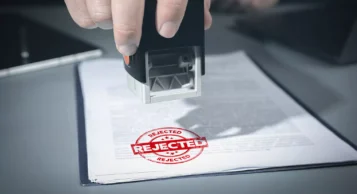
Can an Employer Ask for Proof of a Disability?
Federal law includes different kinds of protections for people with disabilities.
If health problems stop you from working before you reach retirement age, there is Social Security Disability
Social Security Disability benefits provide monthly income and access to Medicare health coverage, so you can support yourself when you can’t work.
But you also might have heard about the Americans with Disabilities Act or ADA.
The ADA protects people with disabilities from discrimination.
That includes people who are able to work and are employed or seeking employment as they also live with health impairments.
So under this law, can an employer ask you for proof of a disability?
Not in every circumstance.
Employers generally can only ask you about a disability or ask you to undergo medical exams or testing, if it’s for the right reasons at the right times.
When an Employer Can or Cannot Ask About Your Disability
The Equal Employment Opportunity Commission (EEOC), which enforces the ADA, says employers cannot legally ask you about a disability or require you to go to a medical examination in these situations:
- When you are applying for a job
- When your health limitations don’t affect your job
- When your health limitations don’t affect your employer’s business
But in these situations, an employer may be able to ask about your disability status or have you get an exam:
- After you’ve been offered a job, they can send you to an exam, but only if they do the same for all employees in the same type of job.
- If you’re already working, they can ask about your health if it’s related to your job and conducting business.
- Employers can conduct voluntary medical exams as part of their health plans but must keep all medical information confidential.
- In the event of an injury at work resulting in a workers’ compensation claim, employers can share medical information with state agencies that manage workers’ comp.
Circumstances, where employers may rightfully be able to inquire about your health situation, include jobs where your physical or mental health is vital to the functioning, and even the safety, of the organization. Examples include airline pilots, some health care workers, and commercial drivers.
How Employers Must Accommodate Workers with Disabilities
Another legitimate reason for employers to know about your health limitations is so they can provide accommodations that let you do your job.
In fact, if you can work with accommodations, employers are required to provide the appropriate support, at no cost to you.
But you will need to inform your employer about the kind of accommodations you need.
Accommodations can include equipment and assistive devices, physical accessibility to the workplace, modifying your work schedule, providing interpreters, providing modifications for training materials, and job reassignments or restructuring.
The EEOC says, “An employer is required to provide a reasonable accommodation to a qualified applicant or employee with a disability unless the employer can show that the accommodation would be an undue hardship—that is, that it would require significant difficulty or expense.”
How Workers Can Get Disability Help
If you’ve been discriminated against in your job because of a disability, you can talk to an employment lawyer and file a complaint with the EEOC.
If you can’t work at all because of serious health problems, that means you have left your job and need to seek financial assistance in the form of disability benefits—because you’re now beyond the point of getting your employer to provide accommodations.
Qualifying for Social Security Disability benefits is complicated.
But disability attorneys, like Tim Geary at Geary Disability Law, can help you through this process.
To explore more about whether you could get disability benefits, contact Geary Disability Law.
Written by a Geary Disability Law contributor.
Disclaimer: Blog entries are not intended to be a substitute for actual legal advice. It is important for a representative to understand the specific facts and circumstances of your case before they can provide you actual legal advice. If you have questions about your Social Security Disability benefits, please contact a qualified representative to discuss your case.
Related Posts

Signs You Will Be Approved for Disability in WI: Do You Have a Strong Case?
When you’re hurt or sick, can’t work and need financial help, you’re on an emotional roller...
Read more
Can I Reopen a Past Social Security Disability Denial in Wisconsin?
People get denied for Security Disability benefits all the time. And very often, they just drop it....
Read more
What to Expect When You Call Geary Disability Law for Help with Social Security Disability
When you call Geary Disability Law for help getting Social Security Disability, you can expect us...
Read more



